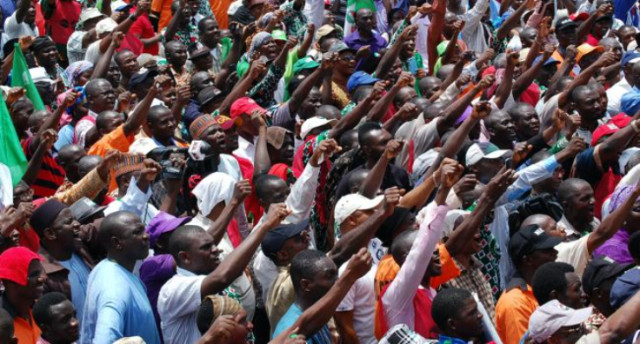In a country with immense potential and a burgeoning youth population, Nigeria stands at a crossroads. The vibrant energy of its youth could be harnessed for nation-building, innovation, and progress. Yet, increasingly, there is a troubling trend: many Nigerian youths are misplacing their priorities, focusing on unimportant issues while neglecting critical aspects that could foster personal and national development.
One glaring example of this misalignment is some youths' enthusiastic support to corrupt politicians and elite. Instead of demanding transparency, accountability, and good governance, many young Nigerians invest their time and energy in bolstering the individuals whose actions undermine their future. Social media platforms, which should serve as tools for enlightenment and mobilization for positive change, are often used to glorify these corrupt figures.
This misplaced loyalty perpetuates a cycle of corruption and stifles the emergence of genuine leaders who could steer the country in a better direction.
Moreover, the disturbing trend of silencing voices of reason is becoming alarming. When a few brave individuals attempt to challenge the status quo, exposing the malpractices of those in power, they are often met with hostility from their peers. Instead of supporting these whistleblowers, many youths join forces to discredit and attack them.
This hostile environment discourages critical thinking and promotes a culture of complacency and acceptance of the unacceptable.
The tendency to bring down struggling, innocent citizens is another aspect of this phenomenon. Rather than uniting to hold public servants and government officials accountable for their actions, some youths prefer to target their fellow citizens.
This is particularly evident on social media, where campaigns of character assassination and cyberbullying are rampant. What is often dismissed as "cruise" or harmless fun has real consequences, destroying reputations, careers, and mental health.
This destructive behaviour diverts attention from pressing societal issues and erodes the social fabric of trust and solidarity.
The root causes of these misplaced priorities are multifaceted. A lack of quality education, widespread poverty, and limited opportunities can leave many young people feeling disempowered and disconnected from the political process.
Furthermore, the pervasive influence of money in politics means that many youths are easily swayed by financial incentives to support corrupt figures.
Social media algorithms prioritizing sensationalism over substance exacerbate the problem, making misinformation, disinformation and divisive content spread.
Addressing these issues requires a concerted effort from various stakeholders. Educational institutions must prioritize critical thinking and civic education, empowering students to become informed and active citizens. Civil society organizations and media outlets should amplify voices that promote accountability and positive change.
Political reforms are needed to reduce the influence of money in politics and ensure that public servants are held to higher ethical standards.
Nigerian youths have the potential to be the driving force behind transformative change in this country. By realigning their priorities and focusing on what truly matters—holding leaders accountable, supporting genuine change-makers, and fostering a culture of solidarity and mutual respect—they can pave the way for a brighter future.
It is time for a collective awakening, where the energy and creativity of the youth are channelled towards building the Nigeria they deserve.




















